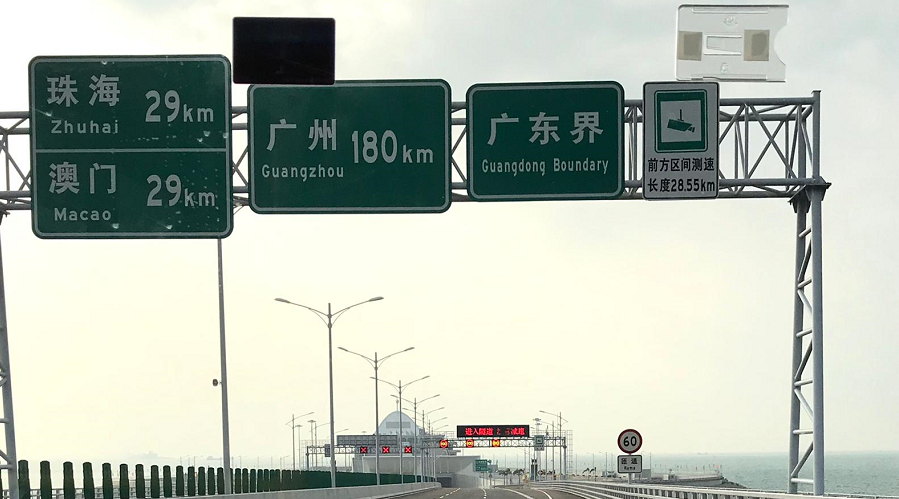ZHANG Jian: Confrontation Hampers Integration to National Development

ZHANG Jian: Taiwan Solution of “One Country, Two Systems”: Lessons from Hong Kong

On a list of keywords to describe the cooperation between the Mainland and Hong Kong in 2018, the term integrated development would rank high. Also appearing on the list would be two landmark events—the opening of the Guangzhou-Shenzhen-Hong Kong Express Rail Link and the inaugural operation of the Hong Kong–Zhuhai–Macau Bridge—both of which represent the integrated development of the Mainland and Hong Kong. Along with the new rail link and bridge, checkpoints between Hong Kong and Guangdong, as well as a trans-city airline network, indicate that the Mainland and Hong Kong have achieved cooperation and bilateral connection in their air–sea–land infrastructure. However, the perception of Hong Kong people on the integration process falls behind the trend of infrastructure connectivity. Obviously there is considerable room for improvement in this respect.
To date, regarding the characteristics of integrated development of Taiwan and Hong Kong relative to the Mainland, Taiwan can be viewed as the region where integration comes before reunification and Hong Kong as where the reverse is true. By extension, Taiwan policy’s aim is arguably to “facilitate reunification via integration”, whereas Hong Kong’s is to “facilitate governance via reunification”. After all, mainstream Taiwanese society resists reunification with Mainland China, and though such attitudes are not mainstream in Hong Kong, voices of counter-integration are strong there nevertheless. In short, the integrated development of the Mainland, Hong Kong and Macau faces many challenges as well as problems on the road ahead.
Hong Kong’s integrated development with Mainland China has nearly kept pace with the progress of the latter’s process of reform and opening up. The dominant player of the integrated development differs across time. In the early to middle stages of reform, Hong Kong spearheaded the integrated development of Mainland and Hong Kong at the time, when countless entrepreneurs and professionals from various industries migrated to Mainland China to establish and operate businesses there and, in turn, actively contributed to Mainland China’s development. In the words of President Xi Jinping to the Hong Kong and Macau visiting delegations at the Celebration of 40th Anniversary of China’s Reform and Opening Up, “Hong Kong and Macau have not only occupied a unique place in the process of the reform and opening up but also been compatriots who make clear contributions and play irreplaceable roles in that process”. During the early stage of reform, many Hong Kong people felt that Hong Kong’s system was superior and Mainland China’s system would be integrated with Hong Kong’s. However, observers in Mainland China have suggested that Hong Kong should be used as an external platform for facilitating national development and the different systems of both sides should remain intact.
During the decades of interaction between the Mainland and Hong Kong, Mainland’s economic development has attracted international attention, while its government has begun the implementation of the rule of law and environmental governance as part of the country’s development strategies. Counter to those trends, Hong Kong has challenged Mainland China on issues of national security, national education and political reforms, not to mention Hong Kong’s independence movement, all of which have provoked the central government to increasingly tighten its control over Hong Kong. At the same time, following the mission of the 19th National Congress of the Communist Party of China “to encourage Hong Kong and Macau to fit into the big picture of national development”, policies to benefit residents of Hong Kong and Macau who live in Mainland China have been introduced to boost Hong Kong’s development as part of China’s national development. Consequently, Hong Kong people felt the sense of ownership in national development including the GreaterBay Area (GBA) plan. In that context, the different institutions of the Mainland and Hong Kong do not coexist in harmony, and Hong Kong’s continued challenge to central government over certain issues could result in unexpected risks to governance.
Attitudes in the Mainland and Hong Kong towards integrated development differ due to their divergent patterns of development and both the internal and external environments. As observed during my extensive travel between the Mainland and Hong Kong, as well as contacts and exchanges with various sectors in Hong Kong, some views on theintegrated development between the Mainland and Hong Kong are rather unique.
For one, Mainland China has developed policies across the country to attract Hong Kong’s youth to seek employment or start businesses in China, which has raised concerns in Hong Kong about brain drain. Despite worries that Hong Kong would fail to retain young talents, only a small share of Hong Kong’s youth have taken jobs or started companies in China. With the extensive publicity about measures to enhance convenience of Hong Kong residents in the Mainland, it may cause misunderstanding that the central government plans to marginalise Hong Kong. At the same time, the integrated development of the Mainland and Hong Kong, especially the planned construction of the GBA, has raised concerns in Hong Kong’s commercial sector which regards Hong Kong as their home market. After all, as some enterprises in Hong Kong are not as competitive as their mainland counterparts, the integrated development of the Mainland and Hong Kong could mean that mainland enterprises will come to occupy Hong Kong market and squeeze out local businesses. Contrary to the publicity by Hong Kong’s government that Hong Kong has advantages over Mainland China in finance, trade and rule of law, polls have indicated that as many as 56% of Hong Kong citizens believe that Hong Kong’s comparative advantages over other cities in the GBA are small or negligible. Since Hong Kong is the most market-based, open and free economy, foreign enterprises will likely enter the Hong Kong market. In that light, the essence of the battle for Hong Kong is to make the region more competitive, not to blame mainland enterprises for restricting its development.
As the implementation of “One Country, Two Systems” have encountered new situations and problems, innovative policies are required. Examples like co-location border control arrangements of the Express Rail Link and the Hong Kong–Zhuhai–Macau Bridge have aroused public concerns that continued innovation will damage the flexibility of governance under the “One Country, Two Systems” . However, the central government has followed China’s Constitution and Basic Law regarding policymaking about Hong Kong. On the topic of how Hong Kong would balance internationalisation, its integration into mainland China and its localisation, a survey released by The Chinese University of Hong Kong has revealed that approximately 30% interviewees, all Hong Kong citizens, thought that by joining the plan to develop the GBA, Hong Kong would experience improved economic development. By contrast, 12% of interviewees expressed that doing so would harm the region’s economic development, whereas 45% remained unsure. Although Hongkongers’ attitudes towards integrated development with the Mainland are hardly optimistic, the essence of such integrated development is to combine Hong Kong’s strength in internationalisation with Mainland China’s strength as a springboard. Accordingly, Hong Kong’s position as an international financial centre could be strengthened by combining the strengths of Hong Kong with that of Mainland China.
Some Hongkongers rarely ponder questions concerning the nation or consider Hong Kong’s role in the process of China’s national development, they prioritise the interests of Hong Kong over the potential advantages of its synergy with the Mainland. Only by removing the notion that Hong Kong and the Mainland’s interests are contradictory can Hong Kong be meaningfully integrated into the country’s long-term development.
From Henry Ho & Gordon Lam (ed.) A Debate of Two Systems, ,p.26
Original from:Opinion page, Ming Pao. (December 28, 2018)




